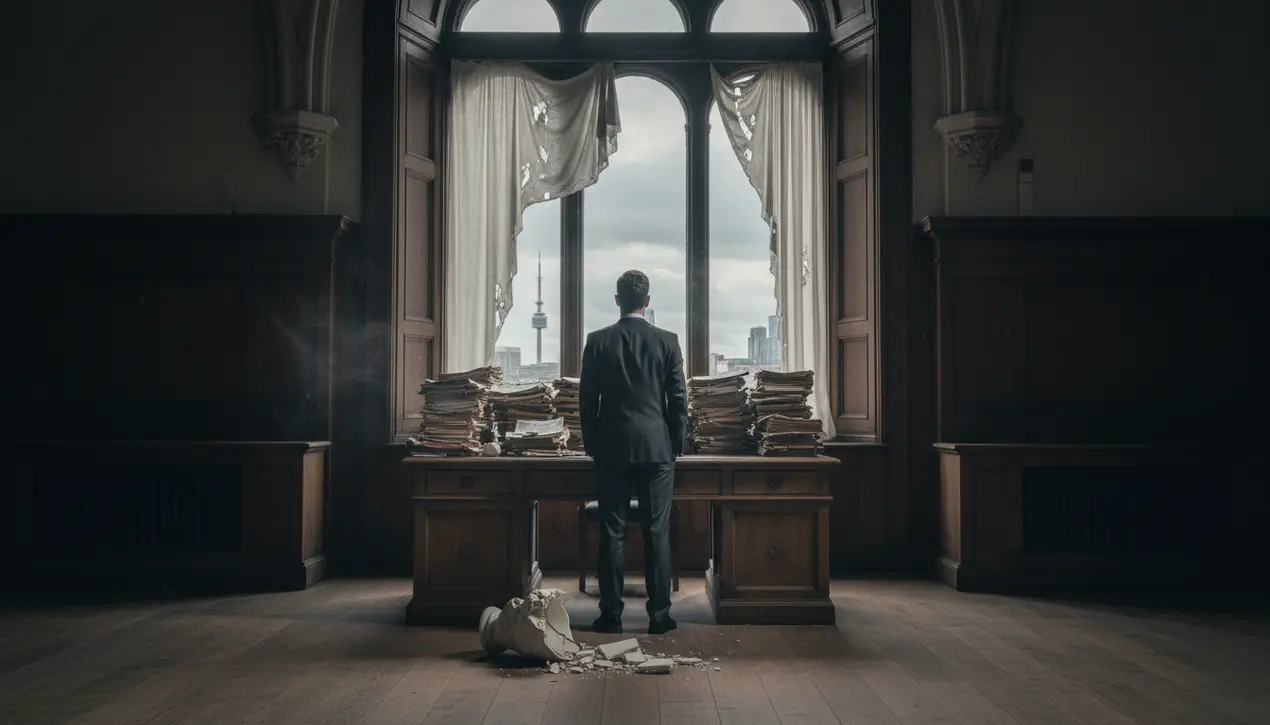
Politicsgovernments & cabinetsScandals and Resignations
BBC's Enduring Crisis of Trust and Governance.
RO
Robert Hayes
3 hours ago7 min read1 comments
The BBC finds itself navigating a crisis of confidence as profound as any in its century-long history, a situation where its own institutional stumbles intersect with relentless political hostility to create a perfect storm that threatens the very foundation of public service broadcasting. This is not merely a temporary dip in ratings or a fleeting public relations headache; it is a fundamental challenge to its legitimacy, reminiscent of the existential debates that surrounded the creation of the British Broadcasting Corporation itself under Lord Reith, whose vision of informing, educating, and entertaining now faces its most severe test.The broadcaster's recent missteps—whether in editorial judgment, high-profile personnel scandals, or perceived biases—have provided ample ammunition for its detractors, primarily from a right-wing political flank that has long viewed the BBC's very existence and funding model as an affront to free-market principles. This ceaseless opposition, echoing the ideological battles fought by figures like Margaret Thatcher against what she deemed 'the enemy within,' has evolved into a sophisticated, multi-front campaign leveraging both traditional media and the unregulated arenas of social media to amplify narratives of institutional untrustworthiness.The consequence is a corrosive erosion of the compact with the British public, the very entity whose belief in the broadcaster's impartiality and purpose is its ultimate shield and raison d'être. Without this trust, the license fee model becomes politically untenable, potentially forcing the BBC down a path of commercialisation that would irrevocably alter its character, diminishing its capacity for risk-taking journalism, ambitious cultural programming, and universal service.Analysts drawing parallels to historical precedents might look to the 1980s battles over the Falklands coverage or the Hutton Inquiry in the 2000s, but the current confluence of internal fragility and external, ideologically-driven assault is arguably unprecedented in its scale and velocity. The strategic imperative for the BBC's leadership, therefore, is twofold: first, to execute a rigorous, transparent, and swift program of internal reform that addresses legitimate criticisms of governance and accountability, much like a nation reforging its institutions after a period of turmoil.Second, and perhaps more critically, it must re-articulate its core mission to a fragmented and skeptical public, making a compelling, modern case for why a publicly-funded, universal broadcaster remains not a relic of a bygone era, but a vital bulwark against disinformation and a cornerstone of a healthy democratic discourse in the 21st century. The alternative—a BBC that loses its way, becoming just another voice in a cacophonous media landscape—would represent not just a corporate failure, but a profound loss for the United Kingdom's cultural and political fabric.
#BBC
#public broadcasting
#right-wing hostility
#governance crisis
#editorial picks news
Stay Informed. Act Smarter.
Get weekly highlights, major headlines, and expert insights — then put your knowledge to work in our live prediction markets.
Comments
Loading comments...
© 2025 Outpoll Service LTD. All rights reserved.